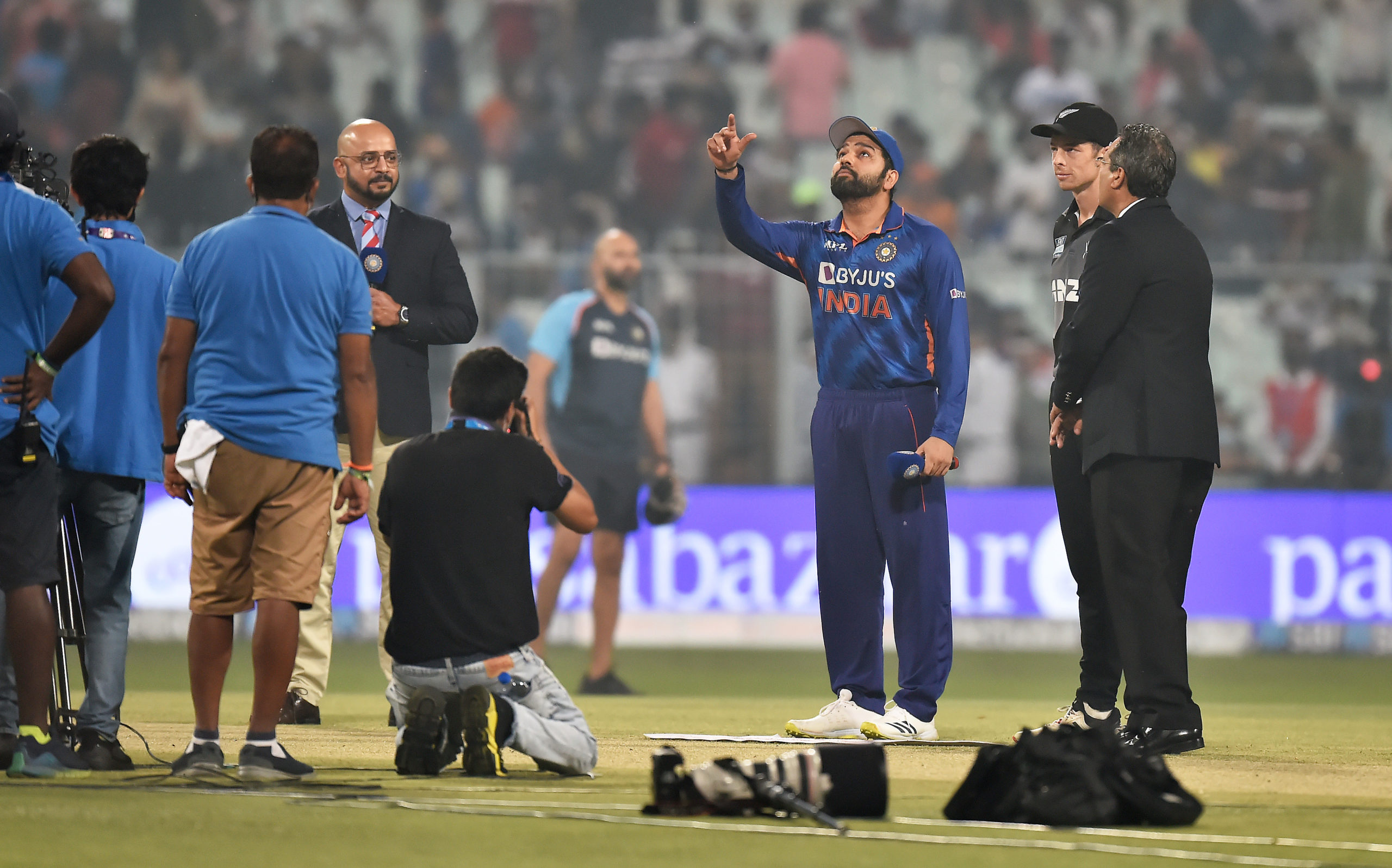Now comfortably in the saddle to lead Team India, Rohit Sharma’s biggest challenge him will come from within. He needs to manage his injuries to make an impact
It was not that long ago when Rohit Sharma’s Test career was in the doldrums. After having a dream start to his five-day career in 2013 with successive centuries in his first two innings in November 2013, though quite late by his standards, this gifted right-handed batter failed to justify it in the following years.
The two three-figure scores (of 177 and 111 not out) were followed by an unexpected slump in his form and stature as one of the most gifted batsmen in history. As he failed to reach this mark in the next 34 innings, he walked back with the bat. In pure statistical terms, this Mumbaikar just managed to score seven half-centuries till the end of 2016.
In contrast, India’s new captain in all formats was doing wonders in white-ball formats. At one point in 2018, rumours were doing the rounds that he might even quit the red-ball format to just concentrate on achieving greatness in the other two shorter formats.
Yes, Rohit was finding it hard to crack the five-day cricket puzzle. And he was already past 30.
Then came the sensational turnaround in his career. Just like how he fought back after being dropped from the 2011 World Cup team, Rohit was asked to open the innings and he delivered exceptionally. He recorded successive hundreds in his first match as a Test opener against South Africa in 2019 and went on to score a double in the third Test of the series at Ranchi.
For him, the cherry blossom appeared after the age of 30. And then there was no looking back as he aggregated 1,462 runs in the next 27 innings at the top of the order at an average of 58.48. In fact, he scored the maximum number of centuries, five, during this timeframe, which was the highest by any Indian during the same period.
Rohit single-handedly was driving Indian success on his shoulders as the Big Three of Team India — Virat Kohli, Cheteshwar Pujara, and Ajinkya Rahane — were constantly struggling to make big runs during this period. For those interested in numbers, Kohli has an average of 39.12, Pujara 28.53, and Rahane 30.05 in this period.
Hitting a purple patch
Rewards were bound to follow Rohit because of how he was carrying the entire burden of his team. But to be the leader in all three formats was a tough one to imagine at the age of 34.
It all happened in a rush. Having been burdened with white-ball leadership in quick time, Rohit has now been given the responsibility of Test captaincy as well by the senior selection panel. This was necessitated after the sudden announcement by Kohli to relinquish the top leadership after an unexpected three-test series loss in South Africa.
Though there has been speculation over Kohli’s future as Team India leader for quite some time, no one in cricket circles expected this to change in such a short time. It was widely believed that the BCCI’s top officials believed in introducing the split captaincy, and Rohit had already been made in charge of the white-ball formats.
However, Kohli stumped them all from South Africa with his announcement of relinquishing the captaincy. The selectors were left with no other choice but to put their faith in Rohit for at least a season or so. This was necessary to groom someone like Jasprit Bumrah, KL Rahul, or, for that matter, Rishabh Pant for future duties.
Senior speedster Jasprit Bumrah has now been named as the vice-captain for the upcoming Test series against Sri Lanka. And Rahul is expected to be an understudy to Rohit in ODIs and T20 formats.
Rohit has started well in his new role. He has yet to lose a match since taking over the white-ball captaincy. India swept the T20I series against New Zealand before registering a 3-0 win in the ODI and T20I series against the West Indies. But that’s not the real test that he would be judged by.
Fortunately, India don’t have too many Test assignments in 2021 — apart from the home series against Lanka, the postponed Test in England in July, and another two-match showdown in Bangladesh in the winter. The most difficult task for Rohit would be to ensure that India performs well in the T20 World Cup in Australia before returning to the World Cup in 2023 on home soil, as it did in 2011.
Change in the air
If Rohit was constantly on elevators, his other two senior colleagues in the Test squad — Ajinkya Rahane and Cheteshwar Pujara — were shown the door from the Test series against Sri Lanka due to a string of poor performances.
The decision was not a tough one for the selectors to make as youngsters like Shreyas Iyer and Hanuma Vihari were constantly pushing for their inclusion with superlative performances at any level at which they were getting chances. Iyer’s tonne on debut against New Zealand in the home series was making it difficult for selectors to keep him in the dugouts. The same was happening with Vihari after he helped India win that historic series in Australia.
While all this has been going on, there is no indication that selectors or the team management have been looking at stop-gap arrangements at the top. The chairman of the selection committee, Chetan Sharma, spoke openly about grooming skippers, which is an indication that Rohit is likely to get a decent time in all three formats to lead Team India till the completion of the 2023 WC.
But this could well be curtains for Ishant Sharma after 105 Tests and Wriddhiman Saha at the age of 37.
Fitness, the only issue
With Rohit now comfortably in the saddle to lead Team India, the biggest challenge for him will come from within.
It is worth noting that Rohit has suffered a series of injuries in his career spanning since 2007. More recently, he was plagued with a hamstring injury that kept him out of Tests and ODIs in South Africa. It would be a challenge for him to not miss a single match during his captaincy tenure due to any more injuries.
The two captains who were there before him — Kohli and Mahendra Singh Dhoni — were extremely fit and only missed a very few games in their long careers as skippers. In recent years, Sri Lanka’s Angelo Mathews had the same issue with a hamstring. And with that, any time a player wants to run fast or take a quick single, the injury resurfaces.
If Rohit gets injured frequently, like in the past, then the selectors would be left with no other choice but to go look around for a more fitter leader soon.
In the 2020-21 Test series Down Under, Rohit missed the first two Test matches of the four-Test series against Australia. He also did not play in the limited-overs series in Australia.
In-form Rohit’s sudden absence in the tour opener meant India were ruthlessly crushed by the hosts. India witnessed their lowest ever score of 36 in Adelaide. And as he managed to make a comeback for the final two tests, India were seen bouncing back from a complete disaster to win the series.
Against South Africa’s depleted side too, more recently, it was probably the best chance for India to register a Test series win there. However, ahead of their departure, Rohit suffered a hamstring injury and was ruled out of the whole tour. The result was India’s 1-2 loss in the series, despite a win in the opening game.
Without Rohit at the top of the order, Indian batters failed to face the Proteas’ new-ball bowlers. The Mumbaikar will soon be turning 35 in a couple of months. Age is not on Rohit’s side, and it would be a challenge for the BCCI to ensure that his understudies in both red and white ball formats are ready to take up the challenge as and when required.
For more stories that cover the ongoings of Delhi NCR, follow us on:
Instagram: https://www.instagram.com/thepatriot_in/
Twitter: https://twitter.com/Patriot_Delhi
Facebook: https://www.facebook.com/Thepatriotnewsindia





